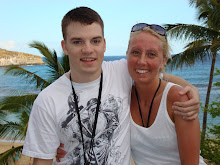I can remember a time when nothing excited me more than the sight of a frosted-over soccer field. Nothing was more sublime than the feeling of starchy blades of grass crunching under rubber cleats. It must have been late September, early October time-frame, when somehow the unthawed, sugary field gave me a craving for Frosted Flakes. Such things occupy a prime position in the cerebral cortex of a nine year old, dancing and kicking gleefully at 8 AM on a Saturday. Autumn air on a Saturday morning was so pure then, and seemed to cleanse the body of its own toxins. This was before greenhouse gases, and I bathed in the crispness of their absence. The cool had a subtle bite that would wash over my squishy round face before trickling into my lungs with a satisfying tickle. I gulped down that oxygen, and felt a natural high when my senses piqued, primed for competition and greedy for attention and paternal adulation. I was good. I had skills. I possessed a natural finesse, and would weave in and out of stalking defenders with a confident ease. I netted goal after goal, just taking the ball somewhere around midfield and dashing and darting, zigging and zagging one 45 degree angle to the right before shifting all my weight and cutting back to the left. Soon the defenders were as helpless as the cones I had rehearsed the simple move against so many times it made little difference whether it was with my left or right foot. Either would nudge the ball with a kind of good natured goading; would urge, but never implore the ball to please gently roll along to its destination of my choosing. And on it would go, indifferent, never deigning or begrudging me any resentment. You'd think I would have spent more time with that deferential ball, with it always quietly acquiescing. We did have a bond, a friendship, but never so much as a kinship of the soul. I could never be that intrigued by inanimate objects as a kid. But as its master, I can recall fewer times in my youth when I felt more in control, more assured of what would happen, than when I was among the diminutive athletes that were my grammar school peers. In fact, as time went on, I would come to feel less and less powerful, and more and more a pawn of fate. Such is the indulgent self-loathing of a teenager, I suppose. What I've come to discover though, is that there are few memories I would rather replay in my mind than those of soccer on Saturday morning. What is so clear to me now is that there was unparalleled simplicity in those amateur contests. It was a kind of simplicity that is only created in the complete lack of consequence. Nothing more was required of me than to chase after the ball. Sure, I might have been more than a little despondent when suffering a defeat, but those were innocent lessons learned, lessons I am thankful for. There was unfettered joy in possessing the ball, selfishly, and knowing your possession was the envy of all. As true as that is, my earliest introduction to the reciprocal joy of giving came when I assisted a teammate in scoring. Many times I would rather pass the ball to a streaking teammate than score on my own. At the time, I couldn't have pronounced the word, but that was camaraderie. It was so much more enjoyable to bask in the triumph together, to laugh and five and wipe our runny noses in unison. All of these became my idyll, each lesson indelible on my character, which nonetheless would prove itself tenuous and aloof at frequent intervals. The character I possess now may strive in vain to replicate such a childish utopia. It can never be recreated, barely revisited. The black spots of my memory, more than just grainy blemishes on the antiquated film, seem to usurp larger segments with each passing year. But in the naive wish to return sprinting in earnest to that heavenly esplanade, existing in its obscure vacuum somewhere on the unreachable shelves of my psyche, I am left wondering what exactly happens. What is it that robs us of that most precious ability to be in the moment, just as much as it is within us? To be able to sprint, wide-eyed and jovial, and suck in life in deep, lingering breaths and be satiated by its residue? I may still be able to play soccer, and enjoy being evenly matched by peers in adulthood, but my ability to radiate utter humanity, and to absorb it and be compelled by its unconditional impetus, may have long been violently disposed of by nothing more than banal practicality. I can blame no one but myself. I am to be held accountable for my own incessant anxiety and worry. But if I could, I would go back and scamper from the mid-line to the box, smiling all the way, before I relinquished the ball to its tidy locale in the bottom-left corner. To me, that is perfection. That is love. That was happiness.


